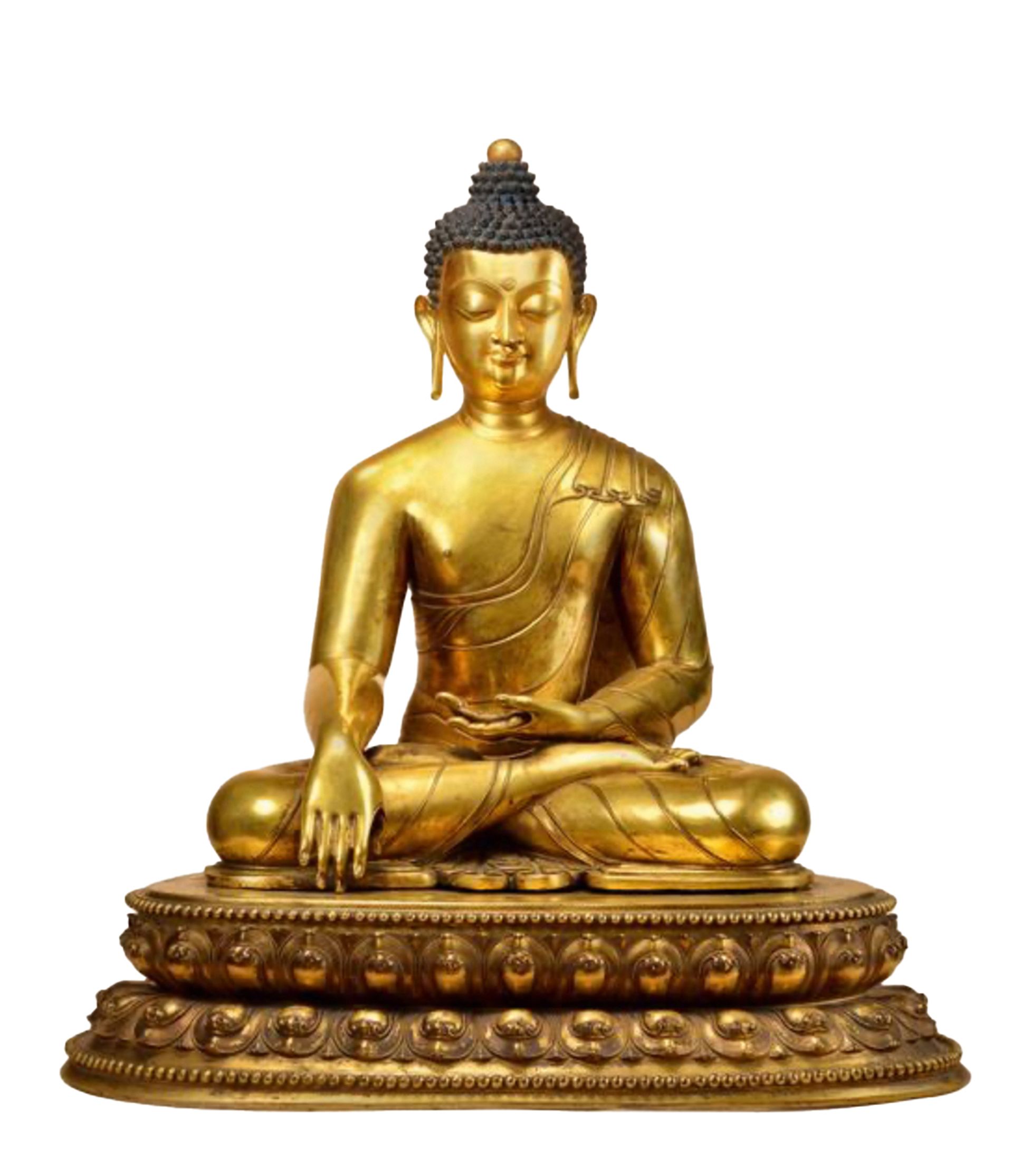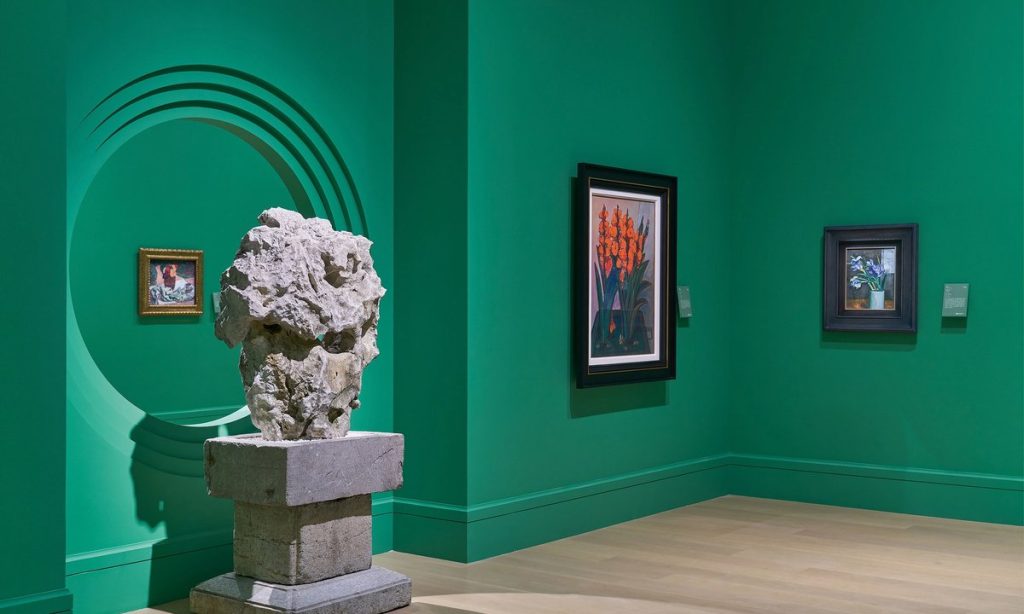For the businessman and museum creator named among the world’s top 200 collectors ARTnews last year, Nanjing-based Wu Tiejun is remarkably cautious. He never gave an interview about his collection and refused to give a picture of it Art Newspaper along with this questionnaire.
Wu prefers to focus on the Nanjing museum, which he founded in 2017 through his real estate development company Deji Group. The Deji Art Museum is located on the eighth floor of the group’s large office and luxury shopping complex, Deji Plaza II. A second location, designed by architect Kengo Kuma, is planned for 2026 near the base of Mount Zijin to the east of the city. With more than 10,000 works and counting, the museum’s collection ranges from ancient Chinese jade and earthenware from the Neolithic period to Beeple’s futuristic video sculpture. S.2122 (2023), purchased at last year’s Art Basel Hong Kong.

Golden bronze statue of Śākyamuni (14th century) Courtesy of Deji Art Museum
Wu began his personal collecting journey 30 years ago with his enthusiasm for Chinese antiquity and Buddhist sculpture, which has roots in his childhood in Nanjing, the ancient capital of China. The Deji Art Museum’s collection reflects Wu’s early vision, representing all major categories of Chinese art, with a focus on classical local painters. But the museum is also building large holdings of modern and contemporary art from the likes of Claude Monet, Pablo Picasso, Georgia O’Keeffe, Yayoi Kusama and David Hockney, led by major curatorial themes. The subject of his latest exhibition, for example, is a 300-year-old flower arrangement (Nothing Yet About Dead Natureuntil March 31).
How did you first get into art?
My first exposure to art was playing in the entrance courtyards of the Nanjing Museum and Chaotian Palace during my childhood. Nanjing has served as the metropolis of ten different Chinese dynasties and is also a prominent Buddhist pilgrimage site, which explains my enthusiasm for collecting Buddhist statues, Ming furniture, Song porcelain and other related objects.
What was the first job you bought?
A Buddha statue.
How quickly do you decide to buy a piece of art?
one minute
Do you have a favorite piece of art in your collection?
Taihu stones [naturally formed porous rocks prized for their sculptural properties] hold a special place in my heart. I think it serves as a synthesis of art: throughout different times and countries, people have constantly turned to the stones of Taihu for the pinnacle of seeking art. Emperor Huizong of the Song Dynasty recognized their importance.
If you could own one piece from any museum in the world, which would it be?
I would choose to return the most beautiful stone sculptures to their rightful places.
What are you looking for at Art Basel Hong Kong this year?
I am excited to have a good selection of sculptural works that resonate with the concept of blackness. Our Deji Art Museum team has made significant and methodical acquisitions related to floral art.
The initial collection was heavily influenced by my personal preferences and love of art. However, as the museum has grown to a certain scale, our contexts and collecting systems have become clearer and more distinct.
What advice would you give to someone visiting Hong Kong for the first time?
I recommend visiting the Hong Kong Palace Museum and M+.
Where do you like to eat and drink in Hong Kong?
I enjoy dining at street food stalls, as they are called dai pai dongLei Yue Mun in the fishing village.
What is your least favorite art fair?
Exhibition floor designs. They often disorient me and make me quite dizzy.


